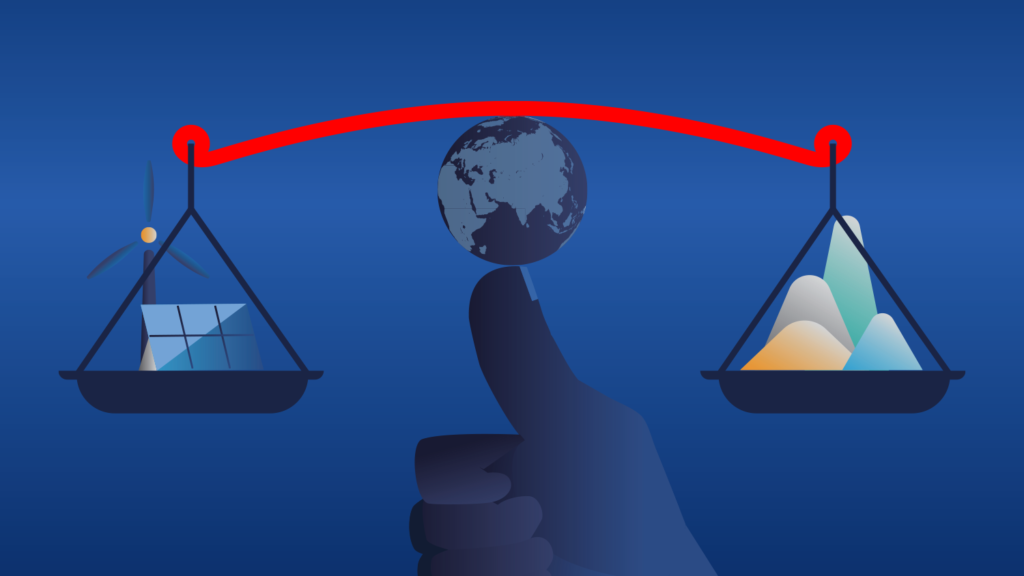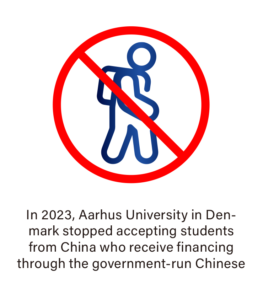
Implications for EU-China industry collaboration
Amid the complexities of global geopolitics and economic interdependence, the European Union (EU) finds itself at a critical juncture that will have major implications for its relationship with China. Central to this is the EU’s ‘de-risking’ strategy, which seeks to reduce the bloc’s dependence on China for its supply chains and key technologies, particularly critical raw materials (CRMs), renewables, semiconductors, healthcare and digital technologies. In this article, Arendse Huld from Dezan Shira & Associates outlines some of the implications for European companies doing business in China.
The EU’s risk management measures will have significant implications for European companies doing business with or in China, in particular those engaged in ‘sensitive’ high-tech industries or that rely on China for the provision of critical raw materials (CRMs) and technologies.
Reconciling renewable energy ambitions with risk management strategies
The EU’s de-risking strategy must be understood against the backdrop of the COVID-19 pandemic and the Russia-Ukraine war. While the pandemic laid bare the vulnerability of global supply chains, the war heightened the sense of urgency among key member countries to decarbonise the bloc’s economy to reduce reliance on imported fossil fuels.

The EU’s supply chains are inextricably linked to China and the bloc remains highly dependent on China for the import of CRMs in particular. According to the European Commission, China currently accounts for 100 per cent of the EU’s supply of heavy rare earth metals (HREE) and over 85 per cent of light rare earth metals (LREE). These include a variety of metals that are crucial for solar and wind power generation, among many other electronics and technologies. Therefore, reducing ‘critical dependencies and vulnerabilities’ is central to the EU’s de-risking strategy. However, building out the bloc’s renewable capacity while reducing its reliance on China presents a unique challenge, one which will have significant implications for European companies operating in these fields.
The CRM Act, adopted by the European Council in March 2024, aims to “strengthen Europe’s strategic autonomy” by diversifying the EU’s CRM supply, increasing the production, processing and recycling of CRMs within the EU’s borders, and establishing new trade ties around the world.[1]
Among its goals is for at least 40 per cent of the EU’s annual consumption of CRMs to be derived from local processing, and to source no more than 65 per cent of the bloc’s annual consumption of each CRM at any relevant stage of processing from a single third country by 2030.
These targets will place a huge amount of pressure on companies over the next six years to find alternative sources for their raw materials. In addition, without a clear roadmap to realising these goals, and as Europe’s domestic industries play catch-up with China, many companies that currently rely on Chinese imports may find themselves with limited options to fill supply gaps.
Other regulatory efforts from the EU could also create further hurdles for companies sourcing renewable technologies from China. In April 2024, the European Parliament approved regulations to ban the sale, import and export of goods made using forced labour, as defined by the relevant International Labor Organization (ILO) conventions. These regulations will implicate products made in Xinjiang Uygur Autonomous Region, a major producer of solar panels and components. European companies importing these goods from China may therefore be saddled with the additional burden of rigorous vetting processes for their suppliers and the risk of having products confiscated or destroyed upon entering the EU.
Increasing pressure to curb EU-China collaboration
The push to reduce reliance on China for CRMs will also have a significant impact on material sourcing for the production of semiconductors and other electronics required for the development of digital and advanced technologies. However, in addition to the efforts to diversify supply chains, EU member states are also coming under increasing pressure to limit other forms of technological collaboration with China.
Much of this pressure is coming from the United States (US), which notably persuaded the Netherlands to impose export controls on advanced semiconductor manufacturing equipment. This move limited the Dutch semiconductor equipment supplier ASML from exporting its most advanced immersion deep ultraviolet (DUV) lithography systems to China.[2]
Exacerbating these factors is the very real possibility of retaliatory measures from China. In July 2023, China’s Ministry of Commerce (MOFCOM) placed export restrictions on 14 gallium and germanium items, key metals used for the production of chips and other electronic components. This move has been widely seen as retaliation for US export controls on key semiconductor technology.
While the export restrictions have thus far been largely US-led, the EU has also begun to develop its own rules regarding technological collaboration with China as anxiety over technology leaks and transfers to Chinese counterparts grow.
In the Joint Communication on a European Economic Security Strategy released in June 2023, the European Commission recommended further controls on outbound investment into technologies assessed to enhance military and intelligence capabilities.[3] Based on this, the European Commission issued a recommendation in October naming four key technology areas—advanced semiconductors, artificial intelligence (AI), quantum technologies and biotechnologies—that require further risk assessment by EU countries.[4]
Among the risks to be assessed are the possibility of these technologies being applied for dual civil and military use and the possibility of them being used in violation of human rights, “including restricting fundamental freedoms”.
In the field of AI, China and the EU are “deeply entangled”, according to a report from MERICS.[5] Both academic and commercial ties between Chinese and EU institutions have flourished over the last decade, with the report identifying nearly 37,000 English-language, AI-relevant EU-China joint research papers between 2017 and 2022. It also noted that several European companies have set up AI labs in China and that Chinese companies offer AI products and services in the EU market.
However, the report also found that many collaborative projects between EU and Chinese institutions have both military and surveillance applications, which include projects on “target tracking, cybersecurity, and biometric recognition with risky entities in China”.
While the report notes that basic research is not currently subject to any EU export controls, such as those imposed by the Netherlands which only target hardware, it is clear that many current collaborations between Chinese and EU institutions fall within the scope of the European Commission’s assessment risks. Given the extent of the collaboration, a vast amount of collaborative research and development in the field of AI may be vulnerable to further regulation and restrictions, both directly from the EU and indirectly by the US.

Although no specific investment or research restrictions have been imposed on academic or commercial collaboration, it is notable that several European academic institutions have already elected to cease or limit collaboration on projects with Chinese government funding. For instance, in 2023, Aarhus University in Denmark stopped accepting students from China who receive financing through the government-run Chinese Scholarship Council (CSC).[6]
Meanwhile, the MERICS report found that a national export control authority has already ordered the closure of a project with a Chinese defence university due to its use of “AI software with potential military application”, indicating that the authorities are already cognisant of the potential risks.[7]
The risks of the EU’s de-risking strategy
The EU’s efforts to reduce dependency on China carries risks that need careful consideration. While aiming to diversify supply chains and enhance autonomy, there is a concern that such measures might stifle innovation in crucial sectors like renewables, AI and semiconductors.
Dependency on Chinese imports, especially for CRMs, presents challenges for diversification efforts. Without clear guidance and support, companies may struggle to comply with regulations and adapt to new sourcing practices, hindering their competitiveness.
Moreover, continued collaboration with China remains vital for EU companies in various industries. Disengagement risks isolating them from valuable resources and opportunities.
The EU needs to strike a balance, providing better guidance and assistance to companies while fostering strategic collaboration with China in key areas. This approach can ensure resilience and competitiveness in an evolving global landscape.
Dezan Shira & Associates assists foreign investors in China and has done so since 1992 through offices in Beijing, Tianjin, Dalian, Qingdao, Shanghai, Hangzhou, Ningbo, Suzhou, Guangzhou, Dongguan, Zhongshan, Shenzhen and Hong Kong.
The company has offices in Vietnam, Indonesia, Singapore, the United States, Germany, Italy, India and Dubai (UAE), as well as partner firms assisting foreign investors in the Philippines, Malaysia, Thailand and Bangladesh.
[1] An EU critical raw materials act for the future of EU supply chains, European Council, 18th April 2024, viewed 9th May 2024, <https://www.consilium.europa.eu/en/infographics/critical-raw-materials/>
[2] Statement regarding Dutch government’s export control regulations announcement, ASML,30th June 2023, viewed 9th May 2024, <https://www.asml.com/en/news/press-releases/2023/statement-regarding-export-control-regulations-dutch-government>
[3] Joint Communication To The European Parliament, The European Council And The Council On “European Economic Security Strategy”, European Commission, 20th June 2023, viewed 9th May 2024, <https://eur-lex.europa.eu/legal-content/EN/TXT/?uri=CELEX%3A52023JC0020>
[4] Commission recommends carrying out risk assessments on four critical technology areas: advanced semiconductors, artificial intelligence, quantum, biotechnologies, European Commission, 3rd October 2023, viewed 9th May 2024, <https://ec.europa.eu/commission/presscorner/detail/en/ip_23_4735>
[5] Arcesati, R, Chang, W, Hmaidi, A, and von Carnap, K, AI Entanglements: Balancing risks and rewards of European-Chinese collaboration, MERICS, 16th November 2023, viewed 9th May 2024, <https://merics.org/en/report/ai-entanglements-balancing-risks-and-rewards-european-chinese-collaboration>
[6] Petersen, L B, AU Stops Admitting PhD Students from China Who Have Signed Allegiance to the Chinese Communist Party, Omnibus, 27th March 2024, viewed 9th May 2024, <https://omnibus.au.dk/en/archive/show/artikel/au-stopper-optaget-af-kinesiske-phd-studerende-der-har-underskrevet-troskabsed>
[7] Arcesati, R, Chang, W, Hmaidi, A, and von Carnap, K, AI Entanglements: Balancing risks and rewards of European-Chinese collaboration, MERICS, 16th November 2023, viewed 9th May 2024, <https://merics.org/en/report/ai-entanglements-balancing-risks-and-rewards-european-chinese-collaboration>


Recent Comments